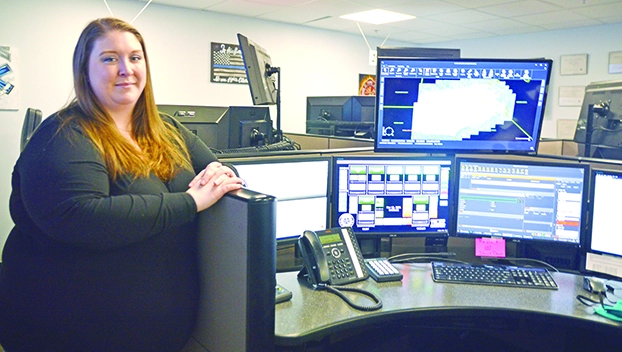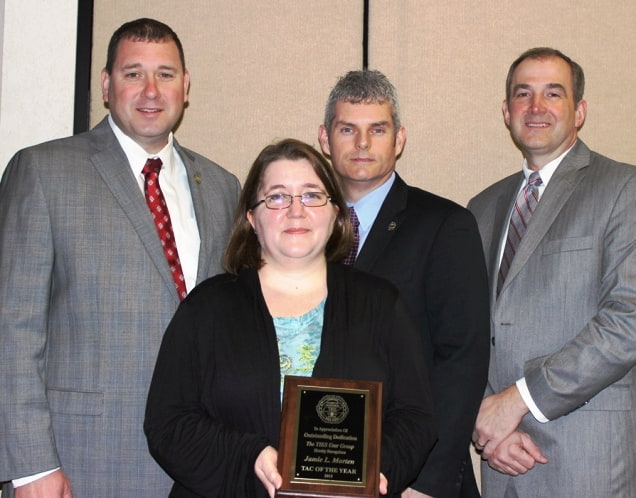
What Is A Terminal Agency Coordinator? All You Want To Know
Terminal agency coordinator (TAC means the designated person that serves as the point-of-contact at the local agency for matters relating to access LEADS to information. Within the local agency, a TAC manages LEADS systems programs and keeps track of how well the organization complies with LEADS systems rules.
Please continue reading as I will present you with more specific information.
Table of Contents
What Does A Coordinator For A Terminal Agency Do?
A terminal agency coordinator is a specialist who aids in the coordination of Terminal Agency Agreements (TAA) between law enforcement agencies and businesses in the private sector. The terminal agency coordinator is in charge of managing and coordinating TAAs on a broad scale. This could involve things like establishing and maintaining a line of communication between the law enforcement agency and the business, assisting in the TAA negotiation, and making sure the TAA is carried out promptly and effectively.
In order to ensure that TAAs are carried out successfully, the terminal agency coordinator serves as a crucial conduit between law enforcement and the business world. Several different tasks, all of which are crucial in the coordination of TAAs, fall under the purview of the terminal agency coordinator position.
What Does A Coordinator For A Terminal Agency Do?
The terminal agency coordinator must first establish and uphold contact between the private sector business and the law enforcement agency. This entails informing both parties of the TAA’s progress and making sure that each is aware of the requirements and worries of the other party. Additionally, the TAA must be negotiated with the assistance of the terminal agency coordinator. This entails identifying the crucial issues that must be resolved in the TAA and collaborating with both parties to do so.
The terminal agency coordinator is responsible for making sure the TAA is carried out quickly and effectively after the negotiation process is finished. The TAA must be signed by both parties, and all necessary paperwork must be finished, filed, and submitted. The TAA must be implemented and followed by both parties, and the terminal agency coordinator must oversee this process.

Duties And Responsibilities
In order to coordinate Terminal Agency Agreements, a critical position known as the terminal agency coordinator is required. To succeed in this position, the terminal agency coordinator needs strong communication, negotiation, and project management skills.
The TAC is charged with making sure that State and NCIC policies and regulations are followed, as well as with demonstrating knowledge of the communications network and the general functionality of the terminal equipment.
Being the primary point of contact between the State and the terminal agency is one of the duties and responsibilities. The TAC is also the first person that the terminal operator(s) of the Lea County Communication Authority should get in touch with if there are issues with the machinery, with transactions, or if there are any queries about NCIC, NLETS, or NMLETS-related issues.
The TAC also serves as the CSO’s point of contact for routine and irregular NCIC, NLETS, NMLETS, and other system use-related issues. It also unifies agency responsibility for system user discipline. The TAC is in charge of keeping an eye on how the system is being used, enforcing system rules, and making sure the agency and any non-terminal agencies they are in charge of follow the NCIC, NLETS, and NMLETS operating procedures.
The TAC is also in charge of directing quality control, operator training and certification, record maintenance, and terminal security officer, in addition to overseeing the verification of NCIC records. The TAC makes sure that the agency administrator and every individual who may be impacted are aware of all the rules, guidelines, and specifications outlined in the NMLETS User Agreements, NCIC, and NMLETS Operating Manuals. The Lea County Communication Authority is committed to excellence; as a result, each employee’s use of the NCIC system is audited each month to make sure everyone is abiding by the policies of the NCIC.
The TAC also informs the DPS/CSO of any/all violations or potential issues with NCIC/NMLETS, and keeps their agency administrator up to date on all current and future issues or problems pertaining to these systems.
Conclusion
Terminal Agency Coordinator (TAC) is a role required by the FBI. Criminal Justice Information Services (CJIS) Security Policy. Each agency that has access to CJIS systems needs to have one. acts as the point of contact for the tribal agency for inquiries regarding access. FBI CJIS systems.
Many thanks for reading.


